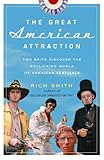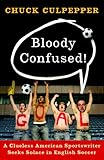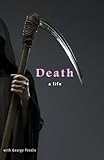Every once in a while I see a specialized literary term go by, and for a little while now, I've been noting them as I see them. Good stuff to know, trivia-wise. Not sure there's much other use to these...
Bildungsroman: Basically, a coming-of-age novel. Anywhere from Catcher in the Rye to Harry Potter. See the Wikipedia entry for more details, including bonus definitions of entwicklungsroman, erziehungsroman and künstelrroman.
Vade-mecum: A pocket reference. Like that thing the Mythbusters always pull out that has all the formulas and stuff in it.
Festschrift: An academic thing, a publication honoring a person, usually presented at their retirement. By their grad students, maybe? German thing, go figure. (According to Wikipedia, if published posthumously, it's called a gedenkenschrift. OK, enough German.)
Dénouement: Ah, on to the French. Here we have the conclusion of the story that happens after the climax. In Harry Potter terms, when Dumbledore explains what's going on to Harry after the big fight.
Deckle edges: Super- untrimmed, ragged edges in the paper in a bound book. Check out
this post at the Powells.com blog for a great explanation and pictures.
Epistolary novel: A book written as a series of documents - letters, emails, postcards. Example:
The Locklear Letters is a novel written as a string of obsessive fan-mail to Heather Locklear.
Lipogram: A lipogram is a word, sentence, or book written without the use of a certain letter or letters. (It's easy to write without Z or X, writing without E or S is harder.) Many examples of lipograms in the Wikipedia article.
A really fun book I read a few years ago,
Ella Minnow Pea by Mark Dunn, is a "progressively lipogrammatic epistolary fable." He loses a word each chapter (written in the form of letters) until there are only a couple left, then gains them back.
 My First 100 Marathons: 2,260 Miles with an Obsessive Runner by Jeff Horowitz
My First 100 Marathons: 2,260 Miles with an Obsessive Runner by Jeff Horowitz




































